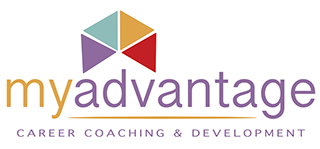
As we move through the next three to six months, the job market continues to evolve in response to changing economic conditions, technological advancements, and shifting workplace dynamics. While uncertainty is a constant in any market, several trends are becoming clear, and there are actionable steps both current and future employees can take to stay competitive.
Job Market Trends
1. Economic Softness and Stabilization
We’re seeing a period of economic softening, particularly in industries such as tech and finance, where layoffs have been more common. However, sectors like healthcare, education, and logistics are experiencing growth as demand continues to rise for essential services. Over the next few months, expect hiring to stabilize in many sectors, though it may remain competitive for high-paying roles.
2. Skills Over Degrees
The demand for specialized skills is at an all-time high, with many employers placing more emphasis on certifications, experience, and hard skills than traditional educational backgrounds. In industries like IT, digital marketing, and data analysis, skills-based hiring is driving how candidates are assessed and brought on board.
3. Hybrid and Remote Work
Remote and hybrid working arrangements are becoming permanent fixtures in many industries. Employees are showing a clear preference for flexibility, and businesses are adapting to this new norm by offering remote options to stay competitive in attracting talent. However, some companies are moving back to in-office setups, so understanding an employer’s work culture is critical when evaluating job opportunities.
4. Focus on Well-being and DEI Initiatives
Employee well-being and Diversity, Equity, and Inclusion (DEI) remain top priorities for employers. As the workforce becomes increasingly diverse, companies are investing more in programs that support mental health, work-life balance, and inclusive hiring practices. Employees will need to seek out organizations that prioritize these values to ensure long-term job satisfaction.
What Should Employees and Job Seekers Do?
1. Upskill and Reskill
With an increased focus on skills, now is the time to invest in certifications, online courses, and workshops that can help you stay relevant. For current employees, consider upskilling in areas aligned with your company’s strategic goals. Job seekers should focus on building a portfolio of in-demand skills to increase your appeal to potential employers.
2. Embrace Flexibility
While some companies are pushing for a return to the office, many are still offering flexible work arrangements. Employees should be clear on their work preferences and ensure they align with their company’s expectations. Job seekers can leverage the demand for hybrid and remote roles by applying to companies that offer these options.
3. Network, Network, Network
As hiring stabilizes and competition remains high, networking is more important than ever. For job seekers, reaching out to contacts and attending industry events, either virtually or in person, can open up opportunities that might not be publicly posted. Employees should continue to build relationships within and outside their organizations to stay connected to emerging opportunities.
4. Focus on Employers Who Value DEI and Well-being
In this competitive market, it’s essential to align yourself with employers who prioritize employee well-being and DEI. Look for companies with strong commitments to inclusivity, mental health resources, and a focus on work-life balance. These are the organizations that are most likely to retain and support employees in the long term.
5. Stay Informed
Keep up with industry trends, economic news, and shifts in hiring practices. Staying informed allows you to anticipate changes in the job market and adjust your strategy accordingly, whether that means learning new skills, shifting industries, or negotiating better terms in your current role.
Conclusion
The next few months will present both challenges and opportunities in the job market. By focusing on upskilling, maintaining flexibility, and aligning with employers that prioritize DEI and well-being, both employees and job seekers can navigate the market with confidence. As always, preparation is key to thriving in a shifting job market.
Shannon Deamer Cameron
CEO, MyAdvantage
